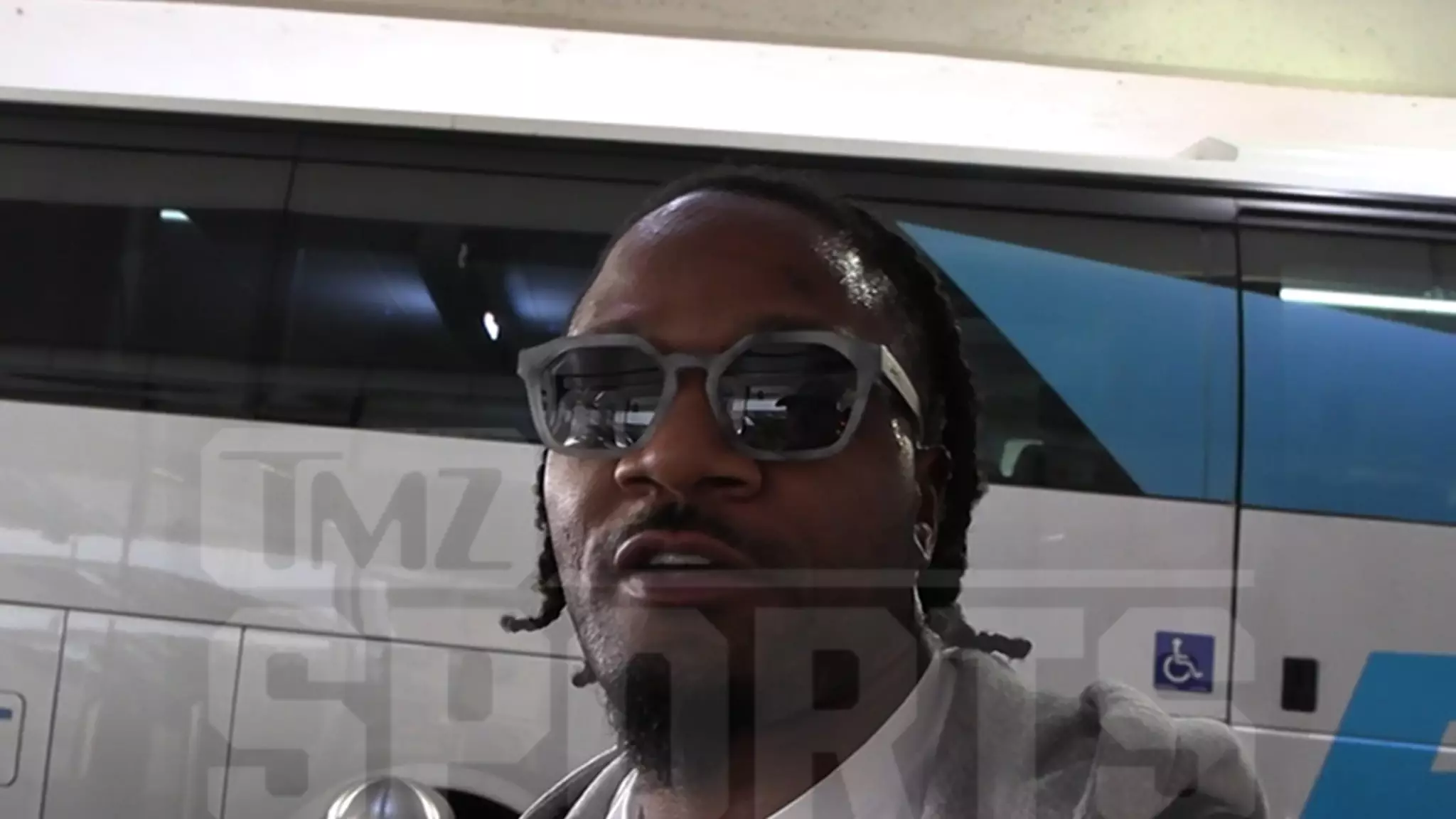The custom of championship teams visiting the White House has long been a celebrated tradition in American sports, representing not only a national acknowledgment of their achievements but also a moment of unity. However, the invitation extended by President Donald Trump to the Philadelphia Eagles has spotlighted the intersection of sports and politics, stirring debate among players and fans alike. Former NFL player Pacman Jones recently expressed his views on this culture clash, advocating for players to accept the invitation regardless of their personal political beliefs.
Jones, a self-identified supporter of President Trump, vehemently argued that attending the visit is a no-brainer for players. His sentiment revolves around the idea that championship athletes should seize the opportunity to visit the nation’s capital and be recognized for their hard work and dedication. “That’s what champions do,” he stated, emphasizing the symbolic significance of the event, which arguably transcends the political realm.
For many athletes, the decision to either embrace or reject such invitations presents a conflict between personal conviction and collective honor. While athletes are often viewed as role models and symbols of achievement, they are also individuals with diverse perspectives. This notion raises questions regarding the impact of political affiliations on camaraderie within sports teams and the greater implications for athletes’ relationships with their fan base.
In his remarks, Jones drew an analogy between the locker room dynamics and everyday workplace scenarios, suggesting that just as employees often tolerate leadership they do not agree with, athletes can similarly separate their professional pride from personal political beliefs. While this perspective may resonate with some, it is essential to consider that professional athletes possess a unique platform and influence. Their decisions may resonate deeply with their fans, leading to potential backlash or support based on their actions.
Jones’ comments inadvertently highlight a more extensive narrative: the balance between individual freedom and the traditions that define a sport. Should athletes, who often represent a diverse array of political views, be obligated to conform to a tradition that may not align with their values? This dilemma encapsulates broader societal discussions around the significance of political advocacy, authenticity, and the expectations placed on public figures.
Amid the tensions, Jones maintained that the visit to the White House is a unique experience that players may not have the opportunity to replicate in the future. He urged skeptics within the Eagles’ organization to reconsider their stance, likening the visit to a once-in-a-lifetime event. While his assertion reflects a valid sentiment about seizing moments of recognition, it also opens the door to reflection on what such visits mean in the context of modern society.
As the conversation surrounding the Philly Eagles’ potential visit continues to unfold, it is clear that the intersection of sports and politics will remain a point of contention. For athletes, the decision to engage in this tradition is not merely about the accolades; it also embodies their responsibility as influential public figures navigating a multifaceted landscape. In the end, the choice rests on the individual—celebrating victory while honoring one’s principles.

